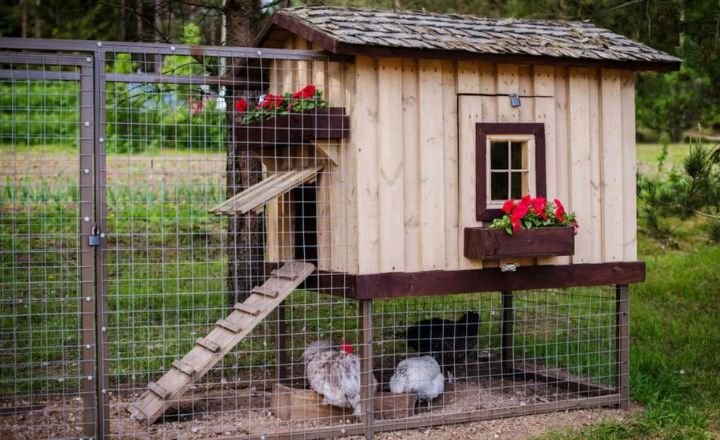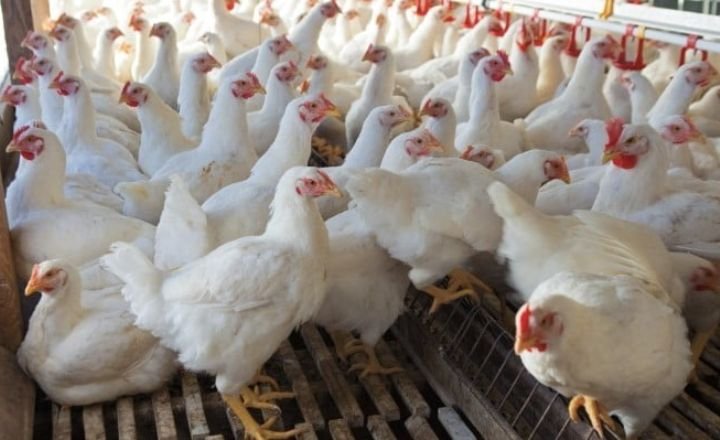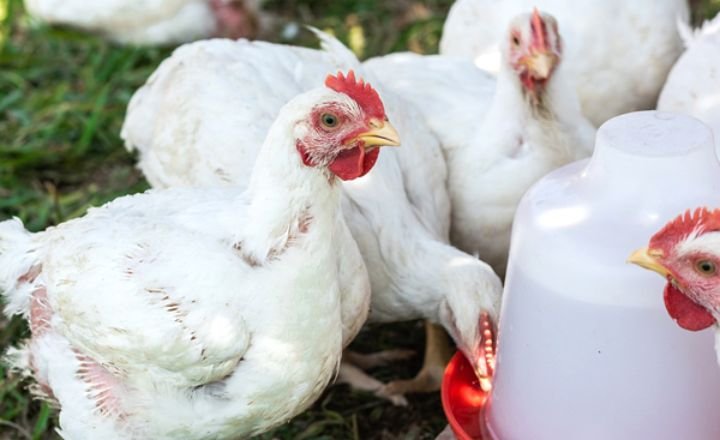Raising chickens can be a rewarding venture, whether you’re a seasoned farmer or just starting out in the world of poultry farming. But have you ever wondered just how much it cost to raise 100 chickens the initial investment in chicks and housing to ongoing expenses like feed and veterinary care, the financial aspects of chicken farming can be complex and varied.
From initial investments in housing and equipment to ongoing expenses like feed and healthcare. The financial landscape of poultry farming and discover if your chicken-raising dreams align with your budgetary realities.
Costs Associated with Raising 100 Chickens
Let’s look at the other costs associated with raising 100 chickens.
How much do you have to pay to get one chicken?
The cost of raise 100 chickens, one must also factor in additional expenses such as housing, feeding, and medical care. These costs can quickly add up, especially if you are looking to start a larger flock.
The gender of your chicken plays a crucial role in determining expenses, as hens tend to be pricier than roosters due to their egg-laying capabilities. By carefully planning your poultry budget and exploring cost-effective options, you can enjoy the rewarding experience of raising chickens without breaking the bank.
Where to buy it?
Buying hens from neighbours or nearby hatcheries can be a traditional and reliable way to start your poultry endeavours. The convenience of being able to physically see and choose the birds you want is definitely a plus.
In our digital age, purchasing hens online offers a whole new level of convenience. From the comfort of your home, you can browse various breeds and select the ones that best suit your needs.
Coop
Investing in a high-quality coop for your chickens is essential to protect them from the harsh climatic effects and potential predators. While purchasing a brand new cage can cost anywhere from $800 to $1000, there is a more affordable option available.

By utilising scrap materials and purchasing raw materials from the market, you can build a sturdy and safe coop for less than $500. Not only does this save you money, but it also allows you to customise the coop to better suit your farm’s specific needs.
Basic accessories
When it comes to setting up a chicken coop, the importance of having the right accessories cannot be overstated. A feeder is essential for providing your chickens with easy access to their food, ensuring they stay healthy and well-fed.
Drinkers are also crucial for keeping your flock hydrated at all times, especially during hot weather.
Feeder
To ensure all costs to raise 100 chickens are adequately fed and content, having multiple feeders is a smart investment. Each hen’s size and breed play a role in determining the ideal number of feeders, but as a general rule of thumb, around 20 chicken feeders should suffice for a comfortable feeding setup.
While this may seem like a significant upfront cost, the efficiency and benefits it brings to the overall well-being of the flock make it worthwhile.
Drinker
Raising a flock of chickens, ensuring they have proper access to water is essential for their health and well-being. For 100 chickens, having 20 drinkers available is crucial to prevent overcrowding and ensure all birds have access to fresh water.
Investing in quality plastic drinkers, such as the 5-quart option at $5.99 each, may seem like a significant expense upfront at $120 for 20 drinkers, but it is a worthwhile investment in the long run.
Bin
Choosing a container for storing food for chickens, the options are plenty. While the traditional metal bin is a popular choice among farmers, there is no hard and fast rule dictating what type of container you should use.

Besides the classic metal bin, plastic bins have also found their way into many chicken coops due to their affordability and practicality. The extra big 20-gallon plastic bin, priced at around $7, offers a cost-effective solution for keeping your chicken’s food fresh and easily accessible.
Bedding
Bedding choice for your chickens is more than just a comfort factor; it directly impacts their health and well-being. While straw bedding offers a budget-friendly option, it may not provide the best insulation or absorbency compared to wood shavings.
Opting for straw may save on costs initially, but could result in higher maintenance requirements in the long run.While straw may seem like an economical choice at $3.50 per small bale, its limited benefits suggest that investing in quality wood shavings could be more cost-effective over time.
Feed(Cost To Raise 100 Chickens)
The hustle and bustle of a chicken coop as these omnivorous creatures eagerly peck at a colourful array of treats. From garden scraps to kitchen leftovers, chickens exhibit a diverse palate that can be both cost-effective and environmentally friendly for their caretakers.

The incorporating items like grapes, apples, or beans into their diets, not only are you providing nutritious alternatives to standard feed, but you’re also fostering a more sustainable approach to raising poultry.
The financial savings gained from supplementing their meals with scraps can make a substantial difference in the overall expenses associated with maintaining a flock.
Electricity, water, and other such costs
The concept of fixed Cost To Raise 100 Chicken in poultry farming goes beyond feed and shelter expenses. Considering electricity, water, and the precious commodity of time as fixed costs sheds light on the nuances of managing a successful operation.
As seasons change, so do the requirements for maintaining these resources. Anticipating fluctuations in electricity usage due to heating or cooling needs can help budget effectively throughout the year.
Understanding the varying water demands across different seasons allows for proactive measures such as installing heated waterers in winter to ensure livestock health.
The Total Annual Cost of Keeping a 100 Chickens
When considering the total annual costs to raise 100 chickens , it’s crucial to weigh all expenses involved. With a sum totaling around $6900 for costs like feed, housing, and healthcare, financial planning is key in optimising your poultry venture’s success.

Amidst these expenditures lies a promising prospect of profit, potentially amounting up to $1500. This means that with careful management and strategic decision-making, the net cost you’ll bear per year would amount to a manageable $5400.
The Bottom Line
The costs to raise 100 chickens can vary greatly depending on factors such as location, feed prices, and infrastructure. A rough estimate suggests that it can cost anywhere from $500 to $1,000 per month to care for a flock of this size.
It is important for prospective chicken farmers to carefully consider all expenses involved in raising chickens and to budget accordingly. By investing in quality feed, housing, and veterinary care, farmers can ensure the health and well-being of their flock while also maximising their potential for profit.
The roper planning and management, raising 100 chickens can be a rewarding and profitable endeavour for those willing to put in the time and effort.
FAQs
What are the initial setup costs for raising 100 chickens?
The initial setup costs for raising 100 chickens can vary depending on factors such as the type of housing, equipment, and feed you choose. On average, you can expect to spend around $2,000 to $5,000 for the initial setup costs. This includes expenses such as building a coop or purchasing pre-made chicken houses, buying feeders and waterers, and investing in heat lamps or heaters for colder climates.
What types of feed are recommended for raising 100 chickens?
When raising 100 chickens, it is important to provide them with a balanced diet that meets their nutritional needs for optimal health and egg production. A recommended feed for chickens includes a combination of grains, protein sources, vitamins, and minerals
Can I sell eggs or meat from my flock of 100 chickens commercially?
Yes, you can sell eggs and meat from your flock of 100 chickens commercially. There are certain regulations and requirements that you will need to adhere to in order to do so legally.
